Table of Contents
Directions (1-5): What will come in the place of question (?) mark in following number series.
Q1. 567, 571, ? , 623, 687, 787
(a) 615
(b) 599
(c) 587
(d) 601
(e) 593
Q2. 167, 118, 76, 42, ?, -4
(a) 17
(b) 14
(c) 18
(d) 16
(e) 25
Q3. ?, 120, 134, 160, 204, 272
(a) 112
(b) 104
(c) 106
(d) 114
(e) 100
Q4. 5, ? , 2067, 2411, 2537, 2565
(a) 1337
(b) 1327
(c) 1317
(d) 1307
(e) 1347
Q5. 427, ? , 366, 73.2, 292.8, 97.6
(a) 51
(b) 41
(c) 61
(d) 71
(e) 31
Directions (6-10): What will come in the place of question (?) mark in following questions.
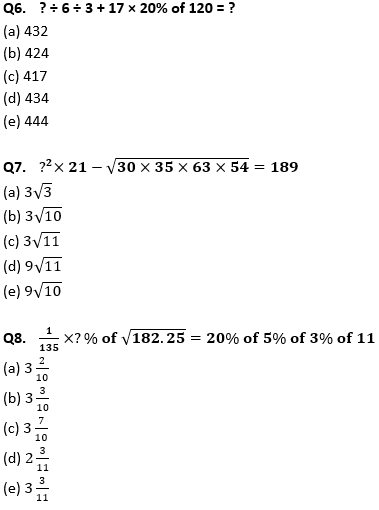
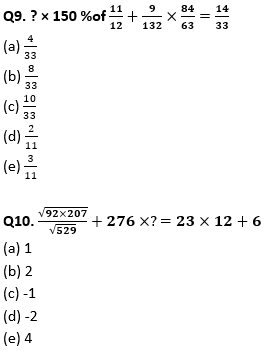
Directions (11-15): In the following questions two quantities are given for each question. Compare the numeric value of both the quantities and answers accordingly.
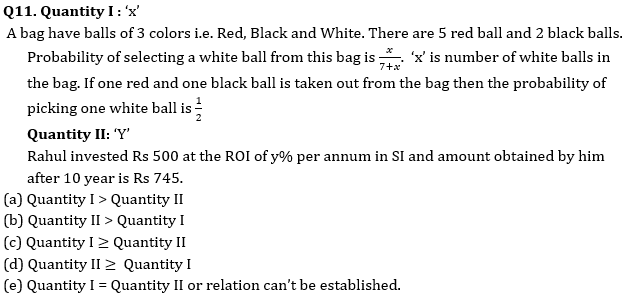
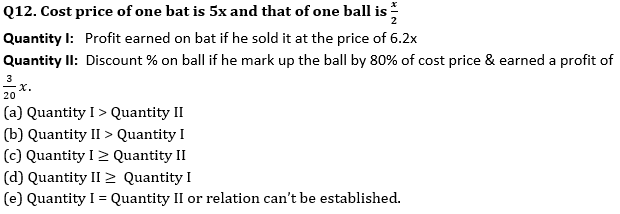
Q13.Quantity I : curved surface area of a cone.
If the base radius of cone is 8 cm & height is 25% less than its radius.
Quantity II: Curved surface area of a cylinder.
If maximum volume of cylinder is 200π and its height is 60% more than its radius.
(a) Quantity I > Quantity II
(b) Quantity II > Quantity I
(c) Quantity I ≥ Quantity II
(d) Quantity II ≥ Quantity I
(e) Quantity I = Quantity II or relation can’t be established.
Q14.Quantity I: Number of days taken by A to complete the work.
If A, B & C working all together can complete the work in 4 days & B & C together takes 6 days to complete it. C is 50% more efficient than B.
Quantity II: Number of hours taken by most efficient pipe to fill the tank.
Three pipes P, Q and R working alternatively in the cycle P→ Q→ R for 1 hour each, can fill tank in 15 hours. A pipe P alone will the take 20 hours, & ratio of time taken by pipe Q to R is 3 : 2 to fill the tank.
(a) Quantity I > Quantity II
(b) Quantity II > Quantity I
(c) Quantity I ≥ Quantity II
(d) Quantity II ≥ Quantity I
(e) Quantity I = Quantity II or relation can’t be established.
Q15. Average age of A, B and C is 33 year. Ratio of age of B to C is 11 : 13 and age of A is 10% less than the average age of A and B.
Quantity I→ Age of B
Quantity II→ Average of A and C
(a) Quantity I > Quantity II
(b) Quantity II > Quantity I
(c) Quantity I ≥ Quantity II
(d) Quantity II ≥ Quantity I
(e) Quantity I = Quantity II or relation can’t be established.
Practice More Questions of Quantitative Aptitude for Competitive Exams:
Solutions


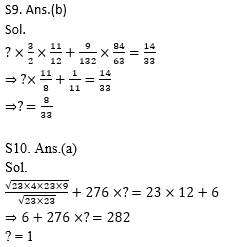
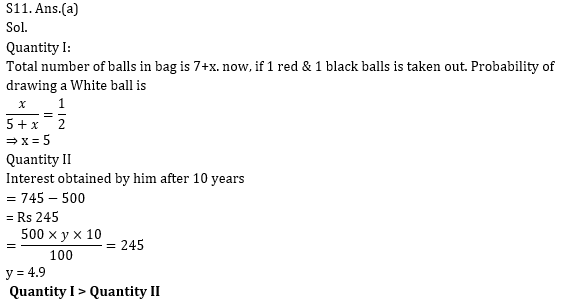
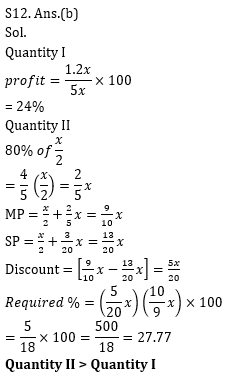
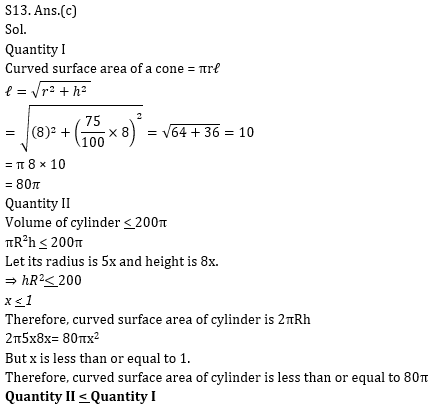


Practice with Crash Course and Online Test Series for IBPS Clerk Prelims:
- Bank Test Pack Online Test Series (12 Months)
- IBPS PO and Clerk Prime 2020-21 Online Test Series
- SBI PO Prime 2020-21 Online Test Series
Click Here to Register for Bank Exams 2020 Preparation Material

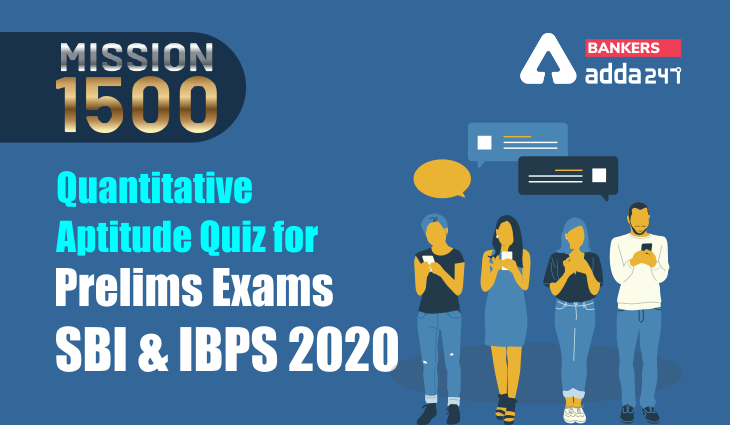


 GA Capsule for SBI Clerk Mains 2025, Dow...
GA Capsule for SBI Clerk Mains 2025, Dow...
 The Hindu Review October 2022: Download ...
The Hindu Review October 2022: Download ...
 Daily Current Affairs 22nd April 2025, I...
Daily Current Affairs 22nd April 2025, I...





